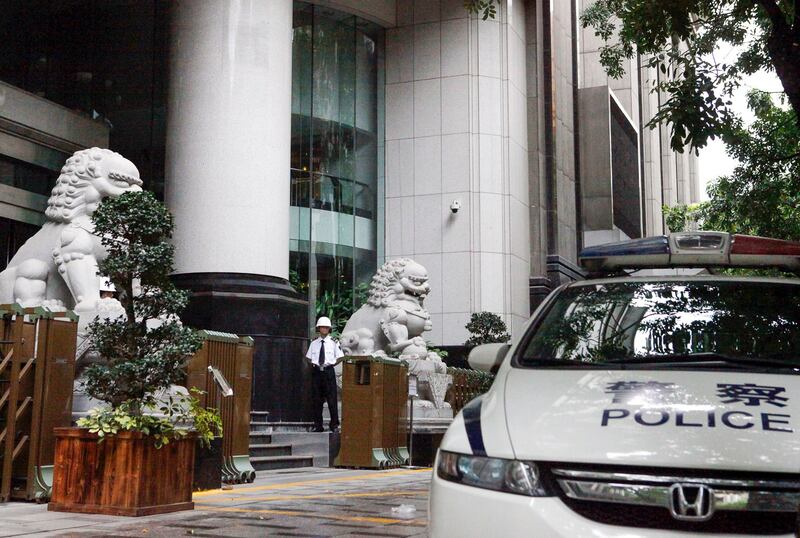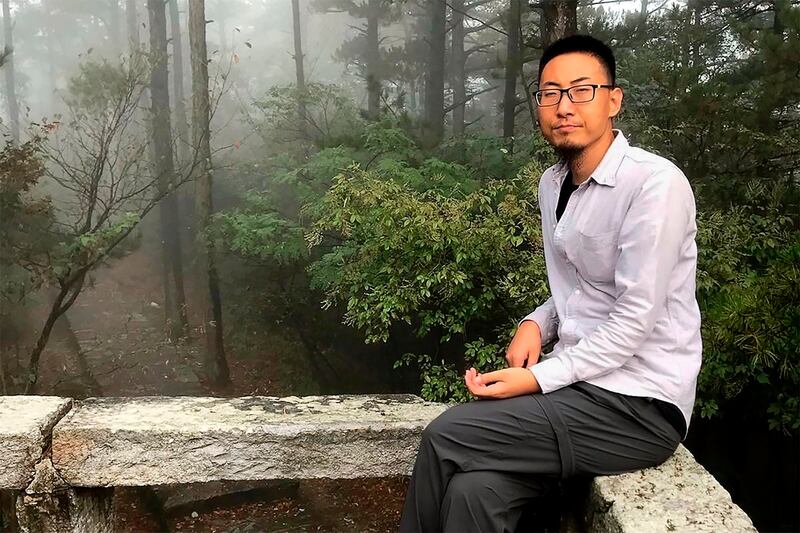A court in southern China on Friday handed down a prison sentence of five years to feminist journalist Sophia Huang after finding her guilty of "incitement to subvert state power."
The Guangzhou Intermediate People's Court also handed a three-year, six-month jail term to labor activist Wang Jianbing for the same offense. Time already served since their initial detention in September 2021 will be taken into account, according to a copy of the judgment posted to social media.
Security outside the court building was tight, with large numbers of plainclothes and uniformed police officers, as well as security volunteers in red armbands, campaigners said.
Journalists weren't allowed to approach the building, according to a campaign group working for their release.
The court also confiscated 100,000 yuan (US$13,800) in assets from Huang and 50,000 (US$6,900) yuan from Wang.
Neither Huang nor Wang has been allowed to receive visits from family members since their detention, but have been allowed legal representation within parameters set by the authorities, fellow activists said.

Huang told the court she planned to appeal the sentence and conviction, the Free Huang Xueqin and Wang Jianbing support group said via its X account, adding that Wang plans to consult with his lawyer before deciding whether to appeal or not.
"Tomorrow will be their 1,000th day in detention," a friend of the pair who gave only the nickname Xiao Cao for fear of reprisals told RFA Mandarin. "It would be a violation of their freedom and dignity to hold them for just one day."
The day before
Huang and Wang were detained on Sept. 19, 2021, the day before Huang had planned to leave China via Hong Kong for the United Kingdom, where she planned to embark on a master's degree in development with a prestigious Chevening Scholarship.
Wang, who is a labor and healthcare rights activist, had planned to see her off on her journey.
They were put on trial for "incitement to subvert state power," a charge frequently used to target peaceful critics of the ruling Chinese Communist Party.

Amnesty International's China Director Sarah Brooks said neither Huang nor Wang have committed any crime.
"These malicious and totally groundless convictions show just how terrified the Chinese government is of the emerging wave of activists who dare to speak out to protect the rights of others," Brooks said in a statement on the Amnesty International website.
"The Chinese government has fabricated excuses to deem their work a threat, and to target them for educating themselves and others about social justice issues such as women’s dignity and workers’ rights," she said, calling for the pair's unconditional release.
Before being targeted by the authorities in 2019, Huang had been an outspoken member of the country's #MeToo movement, and had carried out a survey of sexual harassment and assault cases among Chinese women working in journalism.
Huang was present at a million-strong protest in Hong Kong on June 9, 2019, against plans to allow extradition to mainland China, and was detained for "picking quarrels and stirring up trouble" in October 2019, before being released on bail in January 2020, a status that often involves ongoing surveillance and restrictions on a person's activities.
Huang had previously assisted in the investigation and reporting of a number of high-profile sexual harassment allegations against professors at Peking University, Wuhan University of Technology, Henan University and Sun Yat-sen University in Guangzhou.
The case against Huang and Wang is believed to be related to their attendance at weekly gatherings with fellow activists, hosted by Wang Jianbing, the statement said.
The Chinese authorities systematically use national security charges with extremely vague provisions, such as “subverting state power” and “inciting subversion of state power,” to prosecute lawyers, scholars, journalists, activists and NGO workers.
Translated by Luisetta Mudie. Edited by Malcolm Foster.
